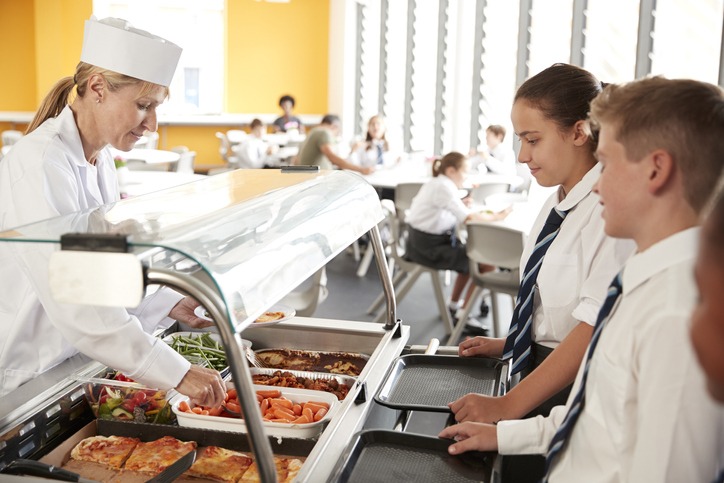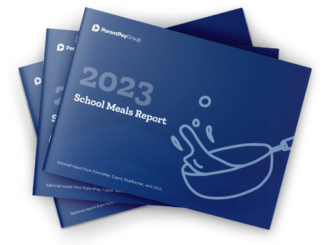
As reported by The Guardian, a survey has revealed that caterers are having to change their menus and cut back on choice because of supply issues
Some schools are substituting lentils and beans for meat while others are cutting pupils’ portion sizes because of rising costs, food shortages and problematic supply chains, according to caterers, who say they are “facing a precipice”.
In a survey by LACA – the School Food People, which represents caterers in England and Wales, 77% of respondents said they had changed their menus because of supply issues, while 26% had cut back on choice.
Caterers reported being “increasingly concerned” about the future of the school meals service, particularly in rural areas, where rising transport costs have created additional problems. They also warned of shortages of basic items including eggs, tomatoes, fish, chicken and cucumbers.
LACA’s 900 members include single-site providers, local authorities and large commercial caterers who provide services across more than 11,500 schools and feed 1.1m pupils a day.
Almost all of the 87 respondents (98%) said they were facing food shortages and seeing substitutions in their supply chains. Three out of 10 (29%) had substituted meat with cheaper alternatives such as lentils and pulses, and eight per cent had reduced portion sizes because of increased costs.
Almost two in five (38%) had reduced menu options because of costs, while one in 10 had reduced the nutritional value of their meals.
Almost a fifth (19%) of respondents were concerned that meeting school food standards in full was becoming increasingly challenging, up from one in eight (12.5%) reported to LACA in November. In addition, 17% had considered moving from hot food to a cold service to help reduce energy costs, up from four per cent in November.
“We are trying so hard to met the standards. It is incredibly difficult and it pains me to say that we cannot currently meet all of the standards every day,” one caterer told LACA. Another said: “No profit at all on school meals now – it’s not sustainable.”
Caterers said they had seen a 20% increase in the cost of food since November, “on top of the additional rises reported last year of over 50%”, LACA reported. To save costs, 13% had switched from British meat to meat from abroad, and a further 28% were considering doing so.
The findings are from the latest in LACA’s quarterly cost of living surveys, which began last March and have documented the challenges facing the school food industry. It found that the price of a school meal had increased on average by 6.1% since March 2020, and further increases were expected from September.
LACA’s chair, Brad Pearce, said: “This survey highlights why funding for school meals must urgently increase if caterers are to continue delivering a hot, healthy and nutritious provision to children.
“The current allocated funding of £2.41 for universal infant free school meals and £2.47 for benefit-based free school meals is falling short. The Institute for Fiscal Studies estimates that if costs had kept up with inflation, the price of a school meal would be £2.87. Action by government is needed now.”
A Department for Education spokesperson said: “To recognise the pressures facing schools, in April 2022 we announced an £18m increase in funding for universal infant free school meals to support with costs around food, transport and staff wages.”



Be the first to comment